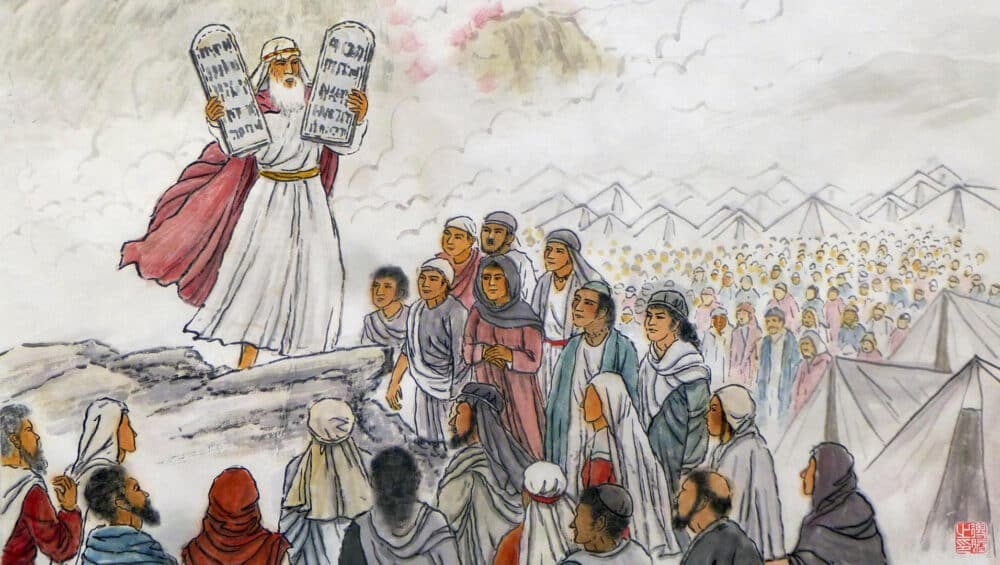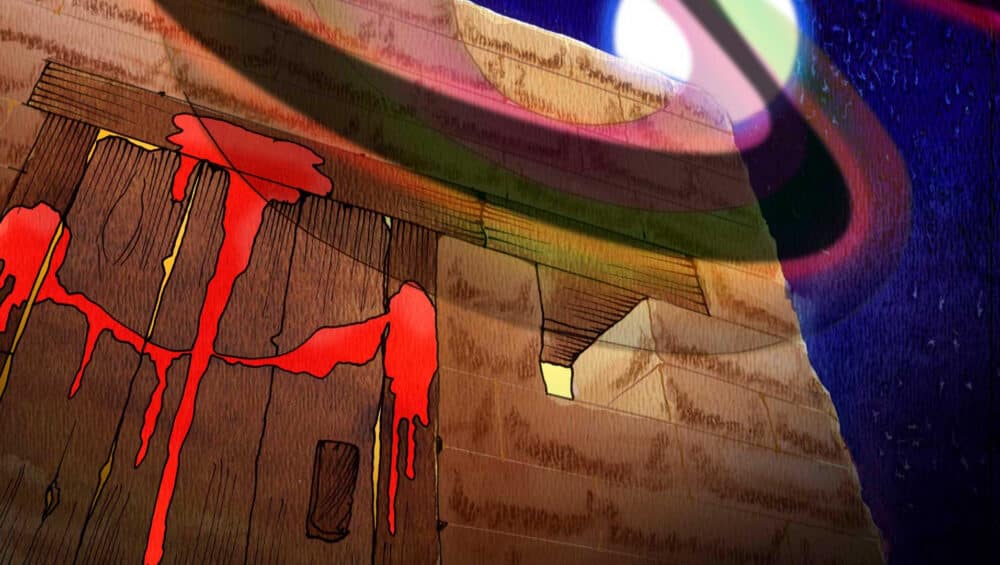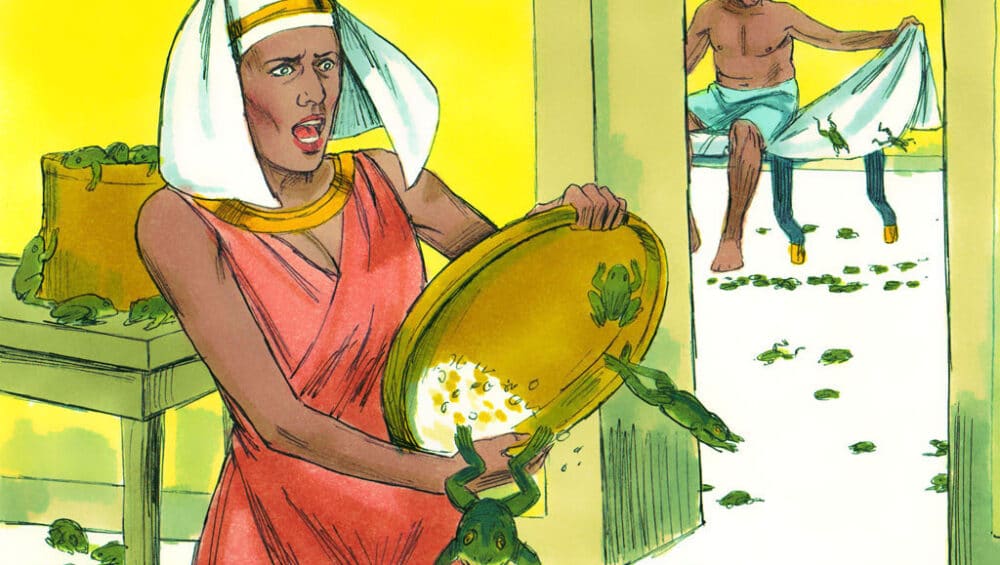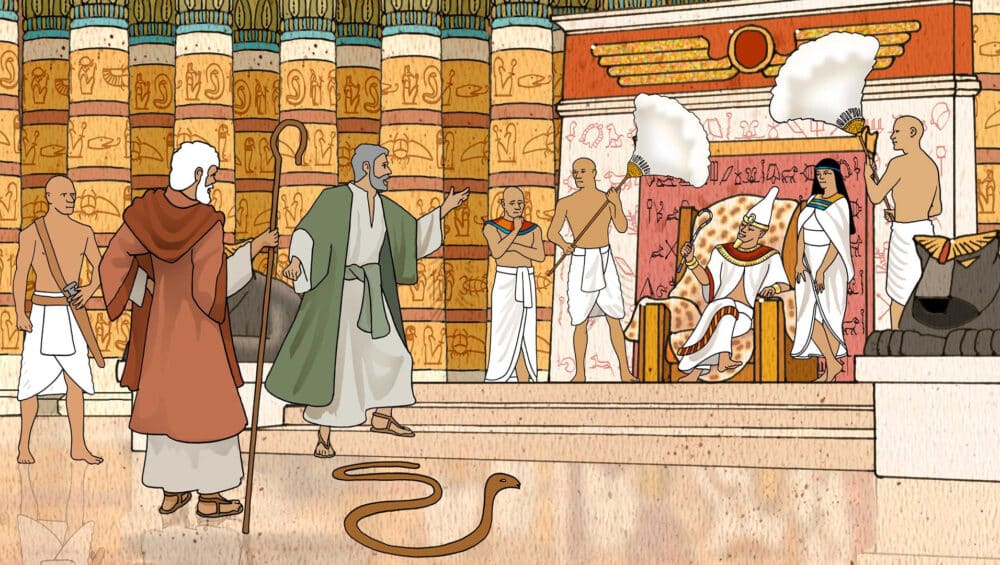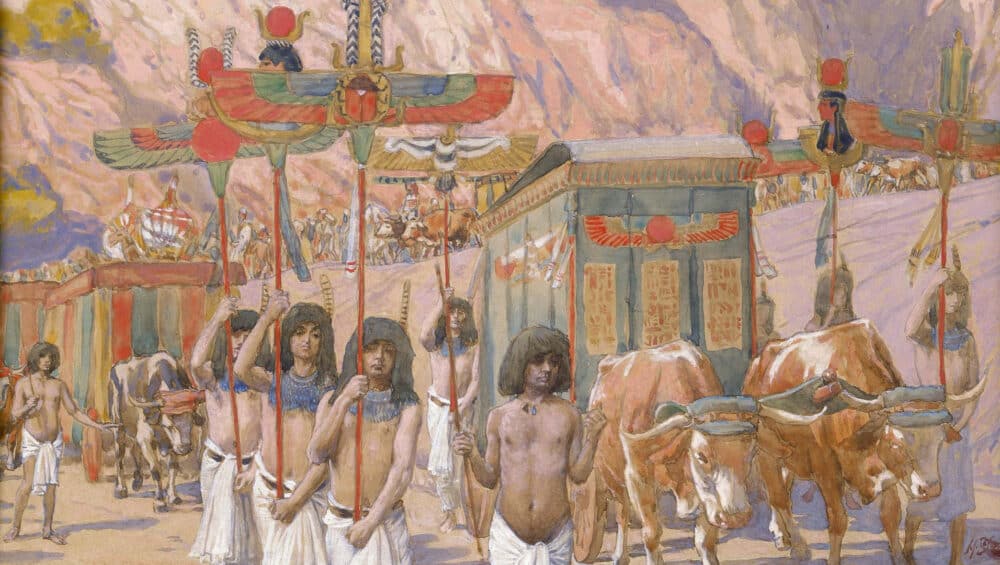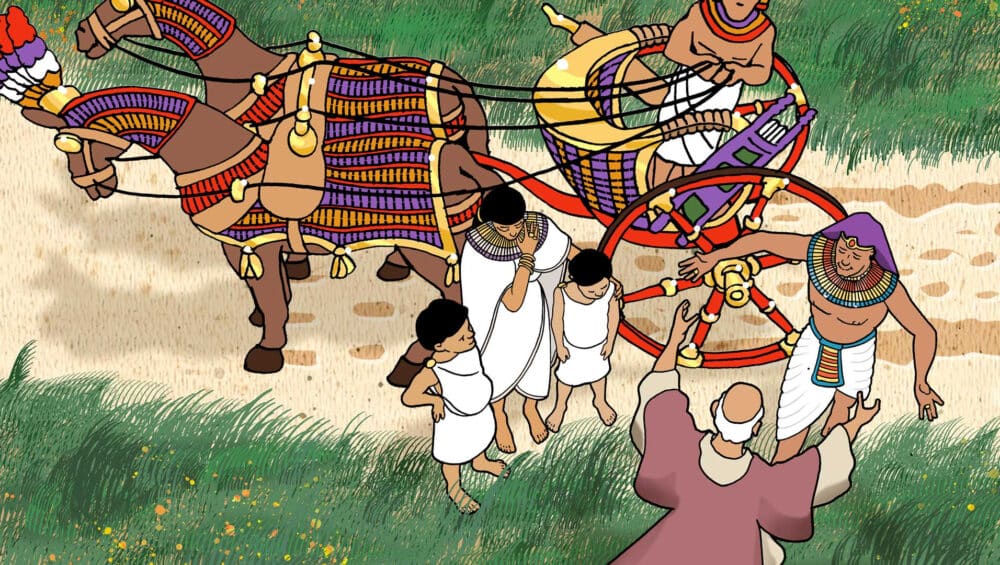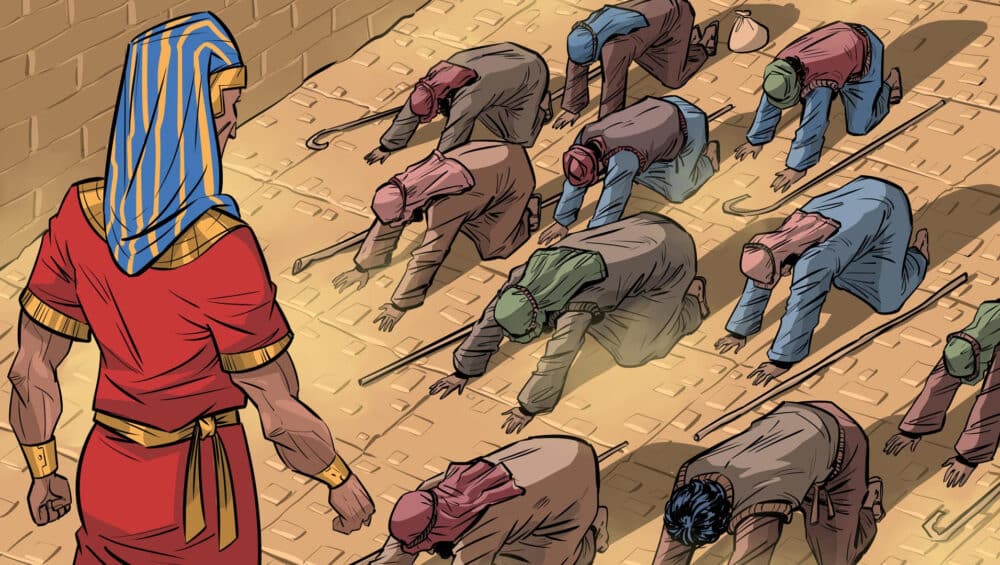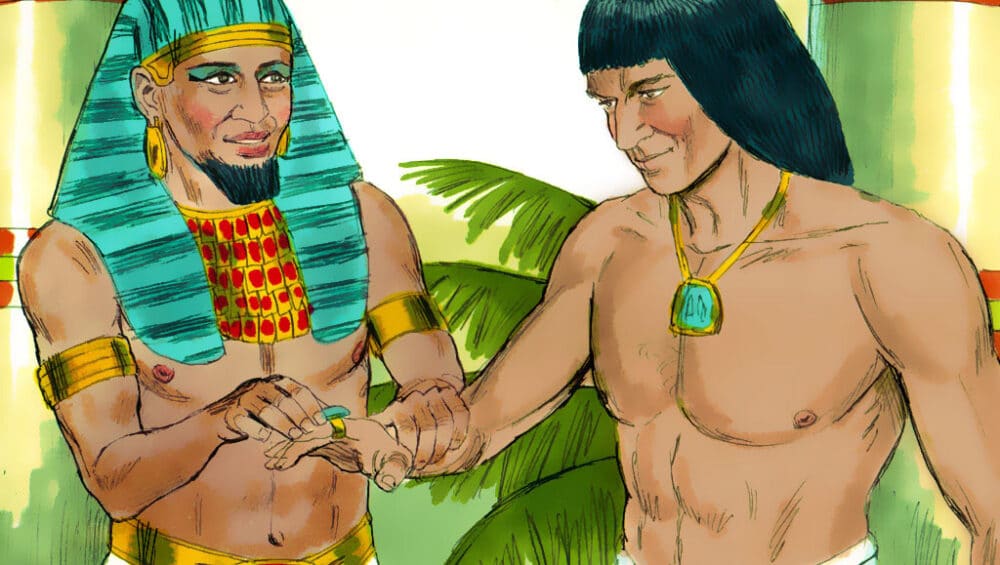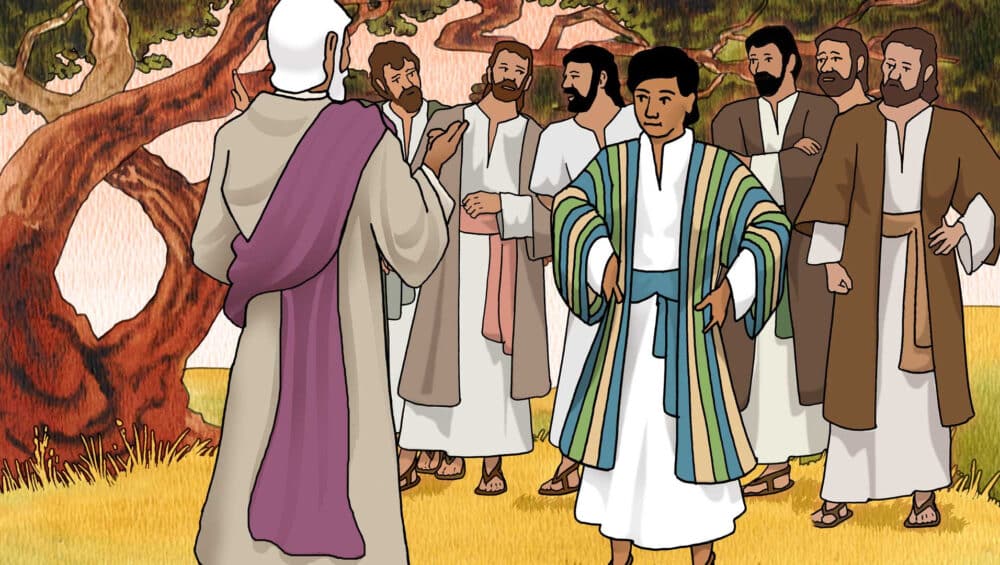Wong Chim Yuen
Welcome to Livin’ Light’s Bible-In-A-Year challenge of discovering God’s love for us and His purpose for our lives. Here is the format for this great adventure: The daily reading assignment is posted at 5 a.m. After each day’s reading, Leigh An Coplin, the blog host, shares observations and poses questions about difficult passages to Rob Fields, who studied Christian Education at Asbury Seminary and currently teaches Biology in the Orlando area. To start from the beginning, click on 365 Bible Readings and scroll down to Day 1. The reading schedule is taken from The One Year Chronological Bible NLT.
Today’s Reading
— Deuteronomy 6-9
(1406 BC) Click here for a timeline of the whole Bible.
Questions & Observations
Q. (Deuteronomy 6:2): What is God referring to here when he says “you will enjoy a long life?” Is he referring to eternal life or just that they will live a long, healthy life on earth?
A. There is not much discussion of eternal life in the first five books of the Bible. It is a concept that is introduced later, notably in the New Testament. Moses is speaking only of a prosperous, healthy temporal life on earth.
O. (6:4): What a simple, great verse, but so hard to wholeheartedly get my mind and heart around. I find it extremely hard to forget about “myself” and replace it with God — God’s will. I often wonder when I will get to this point in my life and how I can let myself go and let God take over. I have definitely taken baby steps in this endeavor and it feels great when I do, but then I need to take even bigger steps to get that same feeling. I am looking forward to a complete turnover. That’s the major reason I am reading the Bible in a Year. Not to do it fast like a race, but to commit myself to studying all of it so I can know God better and what he wants me to do with my life that will help others and help Him. And, I hope to find the time when I can fully give up my own wishes for God’s. It’s just so hard to fathom!
O. (6:6-9): This sounds like what our schools want us to do. We put posters up and try hard to teach our kids everything the standardized tests want them to learn, but how many people post God’s rules all over their house and recite them regularly to their children? Where do our world’s priorities lay?
Q. (7:7): It is pretty amazing that God chose Abraham, who had no children, to be the father of all nations. Then, he finally gave him one child Isaac. These were both good men who followed God, thus God’s love for them and promises to them. But, there is nothing special about this nation, other than the fathers of it were loyal to God. So, it is interesting that God chose the Israelites. Rob, can we talk about this a little? Like, why God chose anyone? What is the purpose of God having his own people? I assume it’s for God to have a model nation to show his power through them, that he is the one, true God. Are there any other reasons for choosing them?
A. I think that the relationship between God and Abraham is special, as Genesis indicates, and the Bible writers go out of their way to point out that when God makes a promise, He is faithful to it — unlike us. So, part of the reason that God is so faithful to this particular nation, that there is nothing else especially interesting about, is that He is keeping His word to Abraham.
In the Old Testament, God is painting an image of a nation that will be a shining light to the rest of the world: a symbol of what right relationship between God and man looks like. At this stage, it looks like this: God sets the terms of the relationship in exchange for the great provisions that He will pour out on His people, as long as they are faithful to the covenant. We will see Israel’s unfaithfulness explored a lot more in the coming texts, but we will also see the way that the Prophets of God (Isaiah, Jeremiah, Ezekiel, among others) will powerfully describe the way that God has remained faithful not only to His promises, but also His vision for the nation of Israel — as unfaithful as she is — to be a light to the Gentile world.
O. (7:9-11): “9 Understand, therefore, that the Lord your God is indeed God. He is the faithful God who keeps his covenant for a thousand generations and lavishes his unfailing love on those who love him and obey his commands. 10 But he does not hesitate to punish and destroy those who reject him. 11 Therefore, you must obey all these commands, decrees, and regulations I am giving you today.”
These verses are a wonderful summary of the awards and consequences of following God’s rules. Loving God is for the Israelite’s benefit. These are verses that you can take either with a “half-empty” or “half-full” approach. Half empty, you can either read it that if the Israelites don’t obey God, they will be punished. Or, half full, read it if they love God, they will give them his unfailing love.
Q. (7:12-14): These verses suggest that if the Israelites obey God they will be fruitful — I would think that would translate into “rich” — but the Bible also says that it’s easier for a camel to go through the eye of a needle than a rich man to get to the Kingdom of Heaven. Is this contradicting?
A. I don’t see a contradiction, and I think that part of the passage we just read helps us understand the distinction. The camel/needle idea comes from Matthew 19:24, in which Jesus is warning against the way that wealth tends to blind us to our own need for God. A rich person is not necessarily dependent upon God in order to prosper or succeed. But that is the danger: it is not the money in and of itself, but what the money does to our spiritual priorities. In this passage (6:12), we see Moses give a careful warning: you are about to enter a realm, he says, where you and your families will prosper. Be careful, therefore, that when you have all this stuff, that you DON’T FORGET GOD! That, I think, is the real danger of wealth and riches in that it insulates us to our own need for God. Such insulation can truly make it easier for the camel to go through the eye of a needle than for a rich person to properly understand their own need for God who has greatly blessed them. I hope that makes it clear.
Q. (7:15): To me this also has a contradiction in it to the NT. Here God says He will protect His followers from sickness, but doesn’t the NT say that sickness can come to Christians? We have seen it come to Job in the OT. That was a different circumstance. And, it doesn’t seem that this necessarily applies to today, right. This “sickness-free” decree was meant for the Israelites?
A. I’m not even sure if I would say that Moses is doing anything but making a rhetorical argument about how good the Israelites will have it in the Promised Land if they are faithful to God. I would say that much of what he is promising here is hyperbole: you will NEVER get sick, your animals will ALWAYS have offspring, etc. I would not take such promises completely literally: Moses is saying that you will have it good in this country. And honestly, part of the problem with the entire scenario is that we never get to find out how much of it was what God truly promised: the people will be unfaithful to the covenant, so they lose out on the promises anyway.
In general, it is a good idea to consider that any promise, rhetorical or not, made in Scripture is only applicable for the people that it is written to, unless the promise specifically says it can be applied to different circumstances. It’s a good rule of thumb for such sections of Scripture. We will see more examples of this, and I will try to highlight instances where either scenario is appropriate.
O. (7:16-20): The Israelites are reminded again and again about God bringing them out of Egypt. After they failed God, I can understand the constant reminders. I, too, need constant reminders of everything God has done for me and that nothing is impossible and everything is possible.
O. (8:5): I never thought of this analogy before, that we are to God what our children are to us. That puts some perspective on our relationship to God: that we are devoid of power and not comparable to Him.
Q. (9:1-6): I am struggling with the question of why God tries so hard to make the Israelites realize that He is all powerful? Why does He care so much? Abraham, Isaac and Jacob are long gone. If He were human, he would have likely given up on them, after all of their failings, a long time ago.
A. I would actually answer this the same way I answered our question from 7:7: God has made a covenant with Abraham, and He is faithful to keep it, even in light of the failings of each generation. One other thing to remember: the nation of Israel will give birth to the Messiah, Jesus. Jesus is the one who will set not just Israel, but the entire world to rights with God. So certainly part of God’s plan is to use this nation, in spite of its failings, to bring about a restored relationship for all humanity — past, present, and future. Why God chose these people is beyond our full comprehension, but as Christians, we can see the way that God is laying the foundations so that one day, God Himself will walk the earth as one of us to save us from our sins and teach us the right way to be in relationship with Himself and one another.
One other reaction I had to the way you phrased your question: be careful about assuming that Abraham, Isaac, and Jacob are “long gone” as you put it. When Jesus was confronted about the afterlife, He clearly pointed to the idea that these men were still alive with God. He quotes God’s conversation with Moses in Exodus 3 when God says, “I am the God of Abraham, Isaac, and Jacob”. God, Jesus tells us, is not a God of the dead, but a God of the living! (Matthew 22:32) What an amazing verse! So, perhaps we would be careful about assuming that God is any less faithful in the afterlife to these men, and those who faithfully follow Him, as He was when they were living.
For further study: What does it mean to fall from grace? https://escapetoreality.org/2014/03/27/fallen-from-grace/
Shop: God loves us so much that He sent His Son to save us! Tell that to everyone you meet. https://livinlight.org/product/deepest-love-t-shirt/
Tomorrow’s reading: Deuteronomy 10-12

